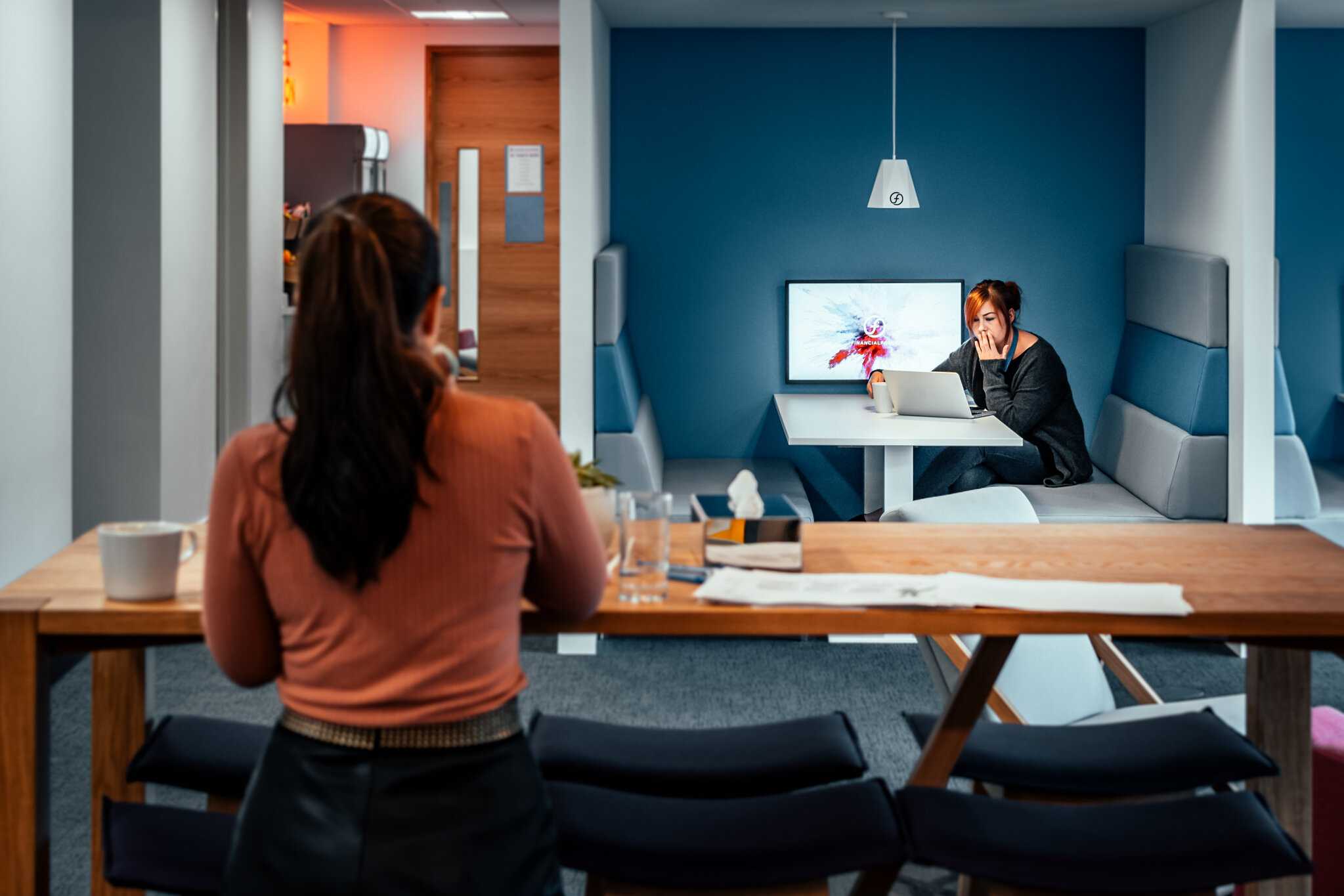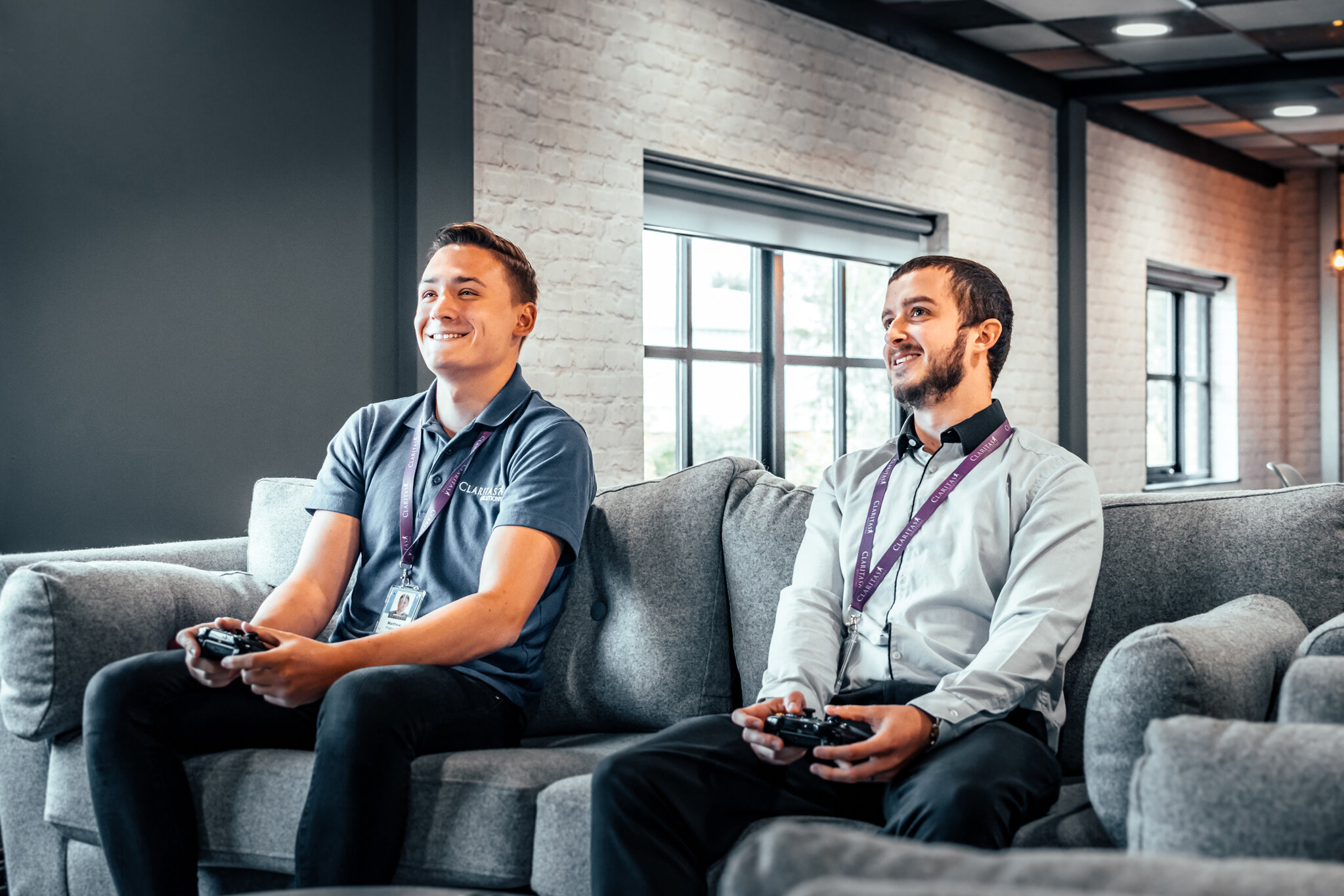How to Cater to Different Personality Types in the Office
Photo by Herman Miller of their Living Office in Melksham
Different personalities in the office are often clear to see, but there are two particular personality types that are commonly present - introverts and extroverts. Both personality types can be incredibly valuable team members and succeed in their roles, but both often need different work environments and working styles to excel.
There are different variations of an introverted and extroverted personality, but there are ways to bring out the best in all personality types from under one office roof. Firstly, let’s uncover some of the key differences between the two common personality types in the office:
Extroverts and Introverts in the Workplace
Extroverts typically thrive in collaborative settings, reacting well to impromptu meetings and group conversations, and happy to work in an open plan and lively office environment. Introverts in the workplace, on the other hand, often prefer privacy, preparation and planning. As an example, an unplanned and informal meeting can throw an introvert way off their game, whereas a planned meeting will have them turning up on top form.
“Solitude matters, and for some people, it’s the air they breathe.”
Of course, there are many people who sit somewhere in the middle of the two personality types, too. But it's important to recognise the contrasting needs and wants of different personality types in the workplace, and it's in the interest of your business and your employees to cater to these!
Office Design for Different Personality Types
Many of the answers for catering to different personality types in the office lie within agile workspaces. Many businesses are becoming savvy to the benefits of offering a choice of work environments to their employees, helping to bring out the best in people by offering employees a choice as to where and how they work in the office.
We often help our clients to develop agile workspaces for their team, offering collaborative areas, private spaces and meeting rooms. This type of office environment boosts productivity and happiness in the workplace, making sure that all employees are supported by their work environment.
• Quiet/Private Working Areas
Many modern office spaces are open plan to enhance people's work as a team and promote a sociable company culture, but this layout can be a little overwhelming and overstimulating for some. To combat this, quiet booths, pods, small meeting rooms and concentration spaces provide a great escape for those seeking some peace and quiet throughout their working day. This is great for all personality types, but particularly good for those who work best when away from distraction.
“Introverts are mistakenly seen as people who are shy or do not enjoy social interactions. Instead, introverts are simply people who relax by being by themselves.”
• Breakout Areas
Breakout areas are designated social spaces that can work wonders for the wellbeing of your team. These areas should offer seating away from employees' desks to provide everyone with the chance to escape their desk and computer screen during the day - even if only to eat lunch or enjoy a hot drink. Breakout areas come in all sorts of settings, from dining areas to games rooms., and have a wide range of benefits to employees.
Having a breakout area in the office also means that the more sociable of the bunch in the workplace have a space to let off steam and chat to others who also want to socialise, leaving the rest of the workspace as a productive environment with less distraction!
• Collaboration Spaces
Office interiors designed specifically to facilitate collaboration are also beneficial for catering to the different personality types in the workplace. These spaces offer collaboration in a designated and somewhat controlled environment, and as it requires a conscious effort to take work and discussions to this space, it can really benefit introverted personality types.
The changing office landscape has moved away from cubicle arrangements and towards a much more fluid and open workspace. As Workplace Insight summarise, the modern office environment often favours extroverts over introverts in design. However, offering an agile workspace is a fantastic way to make sure your office is suitable for introverts and extroverts.
The Importance of Designing for Different Personality Types in the Office
With so many different personalities in the workplace and a combination of introverted and extroverted personality types, among others, not catering to different personality types means that your office environment is only bringing out the best in some of your employees. This can be costly to a business, lowering productivity and also efficiency, as well as leading to an increase in staff turnover.
However, offering a workspace that provides different work settings means that you're catering to those that favour peace and quiet, but also to those who thrive off of a social environment. An agile workspace can help you to bring out the best in all of your staff, maximising productivity and the output of your business. Additionally, a fantastic and supportive workspace can help you to retain your staff better.
To transform your office into an agile environment that can support all personality types in your workplace, get in touch! We’d love to chat about your space. Alternatively, view our office interior portfolio to see the spaces we have already created.
RECENT PROJECTS:










